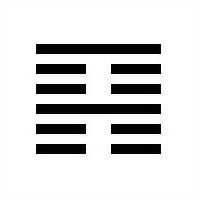First, the definition of meditatoin was not part of original post nor was it implied so I must do nothing. And secondly, you must be a CMA person for the pirate's code...errr aaaa.... the Simple Rules in meditaion to apply and you're not. And thirdly, the post it is more what you'd call "guidelines" than actual definitions. Welcome aboard the Black Pearl... eerr MT, Indagator

Sorry I just could not resist the chance at a Barbosa quote

But seriously....
Would you be more comfortable shàn chán (I think that is the pinyin for what would be translated as meditation? I will have to check or wait to be corrected by those who are better at mandarin than I on MT)
Meditation is the English translation of the Chinese word for meditation, or contemplation and it has been around longer than Catholicism but not Latin. But Latin has little to do with it beyond the closest representation in English to what was written since it is a translation from the original Chinese.
So if you are defining meditation based on Catholicism or the Latin the only connection is based on the translation from the original Chinese to English and the word origin for the word in English known as meditation.
However if you are defining it as the word translated from the Chinese it is simply meditation since posting it in a language other than English is not allowed on MT and would be of little use to most who come to MT since there are very few Chinese speaker here.
The part I posted is from an English translation of the I Ching, which was originally written it a different version of Chinese writing than we see today, and eventually made its way to English. And the I Ching has been dated to roughly 50 BC to10 AD
This will be a bad translation since I had to use Babel fish but that would have originally looked more like this
仍然您的情感通过凝思首先,平靜地坐在與您闭上的後面平直和您的眼睛的一個自承位置。其次,觀察您的身體情感流程。不要判斷也不要抵抗他們; 簡單的實踐觀看他們來,徘徊,並且去,无需行動在他們允許您從您的想法過程逐漸分離他們。
So based on that and how it was translated Latin and Catholicism have nothing really to do with the original word in the Latin and Catholic context any more than Meat bun being equated to Bowza.
or
和平 = hépíng = PAX = peace
EDIT
Also the original post is more to the practice of meditation, guidelines for practice if you will, than a definition of it.
.

